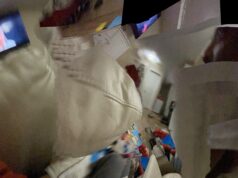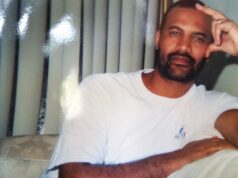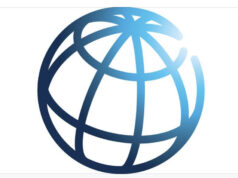A Summary:
The failure of the Ethiopian political opposition forces and civil society movements to act in unison on common ideals of national interest has enabled the dictatorship of the TPLF/EPRDF regime to persist in power through nearly three decades, thereby prolonging the multi facade misery of the Ethiopian people. The daily events in the entire nation are gripping stories of conflicts, death, destruction, looming famine, fear of disintegration and statelessness. These dismal eventualities, by their nature, are the common concerns of every citizen, and above all of every organized political group and civil movement which aspires for a popular change, but which have refrained so far from tackling the lingering burden, collectively.
Failure to forge a generic national vision, a common program of action to translate the vision into a reality and the commitment to adhere to democratic principles agreed upon appears to have been the core factors that are hindering the realization of the cherished dream of a tormented nation. The heeding of these factors, by-and-large, rests on the shoulders of the organized elite, styled in the form of political or civil society assemblage. However, these different elite classes happen to be embroiled in unworthy squabbles some of which are indeed aged grudge against each other or sectarian ambitions, perhaps also ideological fixations, but certainly irrelevant as far as the national issue at stake is concerned.
An urgent and inclusive dialogue on how to end the dictatorship that has brought us to where we find ourselves now and shape the future of our Ethiopia is long overdue. A collective vision that strikes an admissible balance of state-society relationship, accompanied by concerted actions of ending the culture of domination-ridden conflicts, could relieve Ethiopia from the haunting predicaments. This is not remotely placed if the will and sensibility required is evoked.
General Introduction:
Before embarking upon the main topic at hand, let me pose a general fact that has gripped the viability of the last four or five generations of Ethiopia. For most part of the 20th century to this day, the overwhelming majority of Ethiopian people have lived in abject poverty, intermittent wars and degrading backwardness. Recurring famine is still haunting our people; no wonder famine has become the hallmark of Ethiopia. Indeed, no other than the successive repressive governments that manipulated the state power for the benefit of the ruling elite bear the responsibility of damping Ethiopia in such a shady reputation. The Ethiopian state is still a tool of the aggressively reigning ruling class, namely the TPLF/EPRDF that knows no bounds of repression and hence possess neither legitimacy nor accountability.
As no nation can survive without a state nowadays, people within that nation has the duty to install and set in motion a state that safeguards their interest as well as enhance their development. In actual fact, the emergence of the historical state was meant for the wellbeing of the concerned people. Thus, without a state based on the peoples will and influence, collective engagement in politics, stability, continuity of peace and progress were unthinkable.
In the Ethiopian case, a state of and for the people has never existed. There is not even an equivalent word for the notion of a state in the Ethiopian languages. This is why the state is often, if not always, mixed up with the notion of government. Let me use this opportunity to introduce the word MENSIH (መንስህ) for the concept state in order to elicit the dichotomy of government and state. We can still call a government as usual MENGIST (መንግስት) and coin a word for a state MENSIH (መንስህ) which I tailor from system of people’s governance, (i.e. መንግስታዊ ስርኣተ ህዝብ).
Delineating the conceptual differences between a state (MENSIH), i.e. the general system of governance on the one hand, and a government which is a body responsible for the execution of specific policies on the other, is absolutely necessary; in that the state is the system of governance created by people to meet the requirements of life, while a government is a section within the state that manages the state apparatus in a given span of time. Relatively gauged, the state constitutes a permanent set of institution while a government is an ephemeral power of implementation. Hence, the state stands as a collective power above both the government and the governed until a conscious civil society outsmarts it role and finds it redundant.
The conscious elements of the society in general and the elite of political forces and civil movements in particular, when united under such indispensable project, can play a decisive role in setting up a legitimate state of the people. Under such a state, governments can be scrutinized, while appropriation and transfer of political power to run a government could be peaceful and orderly, wherefore socio-economic progress should not be hampered. In a nutshell, a legitimate state by and for the people is a sine qua non of a stable and industrious society; such a state, with all the attendant institutions of governance, should be set in place by the combined efforts of all concerned actors before running for power. This is one basic challenge for all the opposition social groups in Ethiopia upon which their survival and sway in turn would be meaningful. Such a state can only be a product of the collective will of the national components and not the wish of one or two individuals or parties.
Why is Ethiopia in Deep Crisis and heading towards State Collapse? What is the Standing of the Opposition?
No one disputes that contemporary Ethiopia is fast drifting into unprecedented disaster, with widespread ramifications of conflicts and total anarchy. Even the TPLF ruling class, in its recent congress declaration, with half-baked admission of guilt, has made it abundantly clear that the deep crisis is rampant. The point of contention however is providing a correct analysis of the root causes of the surging anarchy and implementing the right remedies. As the saying goes “correctly identifying a problem is half way the solution”. To the TPLF/EPRDF, such an approach is alien.
As we inspect the crisis, it is for all to see that three agents stand out as the main factors that stalled the future of Ethiopia and also contributing to the sliding of this country to uncharted political terrain. These actors are a) the TPLF/EPRDF regime, b) the foreign powers catering for repression, and c) the opposition itself. Indeed these actors appear independent of each other and may have conflicting interests, yet in prolonging the misery of the Ethiopian people, intentionally or unintentionally, they are on the same footing. Let us briefly see them one by one:
1st. The most hideous actor in the trauma is the TPLF/EPRDF ruling class. This ruling clique has instituted a vicious dictatorship of the worst type and continuously inflicted untold sufferings upon the entire people. More so, it is adamant to pursue this path, perhaps until it burns itself out. Since much has been said and written about the character and fate of this moribund regime, I will not spend time reiterating the obvious but only say that this regime has to go and the sooner the better.
2nd. Equally, responsible for the predicaments the Ethiopian people are undergoing is the band of foreign powers who has enable such a vindictive regime to remain in power, and also by posing every imaginable impediment against the struggle for justice. Knowing that it is a tyrannical regime, the foreign powers especially the USA, the UK and nowadays China who still finance, arm, advice and, train the ruling clique are no less guilty in the acts of collusion against our country. This unholy alliance with the EPRDF has to stop, and can only stop when we as opposition forces and civil movements in unison mobilize our people and stand consistent in the struggle for our collective rights.
3rd. The third factor is the opposition itself. By opposition I am referring to the category of all organized or unorganized citizenry that is opposed to the regime in power and its arch patrons. Of course, in this category of opposition, the organized political groups and civil movements stand out as the body where the heavier chunk of the responsibility lies. Failing to unity in order to create a formidable force of the people which could have compelled the regime in power to surrender its unwarranted control and also turn the scale of the foreign powers is the grim reality we are facing these days. Can this grim reality be reversed? Of course yes, but only if the will and determination to abide by collective principles is alive. If this path can bring an end to the regime which is causing so much misery, why are we, the members of the broad opposition, unable to stand up to the formation of united force that could lead us to the desired change? It is this third factor of opposition groups that requires profound scrutiny, if we are to come out of the quagmire we are drowning. Unless the numerous opposition, in and outside the country, put themselves in the right shape and order i.e. pulling into a united movement based on general principles of a democratic system and worthy of registering the success our people deserve, the whole country will continue to bleed and the worst may come.
The Nature of the Opposition and the Looming Challenges:
Evidently speaking, in the Ethiopian political culture, pluralism had no place and therefore opposition or party politics was considered anomalous and illegal. Monarchic, militarist and separatist individual leaders, with all sorts of claims and demagogy, have been determining the fate of million. This political culture is still alive as one can observe in the inner workings of many political organizations and among ourselves.
In this cultural milieu, seizure of power through brute force has been the order of the day and still is the case, the main reason being regimes in power allow no alternative means of political engagement other than the usual monopoly. The TPLF/EPRDF regime seized power in this manner and bows to continue in power that way. There exists no political space for opposition parties to operate or for dissenting view to be expressed. Let us leave the case of the tyrant regime for the moment as it is and instead focus on the opposition.
The regressive political culture we alluded to above in so many ways has permeated through most of the opposition groups and is reflected in a number of instances, regrettably deranging the harmony of working together for a common cause. For the benefit of clarity, let us refer to some instances of the backward cultural manifestations in which the opposition is drowned.
a) In the name of unity, many tend to deny our diversity, and with that denial the attendant rights are negated. Conversely, in the name of secession, it has become common to deny the merits of unity and the progress it entails. In both cases, denial feeds dissonance and propagates uncalled-for conflicts within the opposition and beyond.
b) Many opposition elements believe their political position is the ultimate truth and hence leave no room for alternative opinions. Still worse, holders of an alternative line of thought are treated as enemies, in most cases condemned to perish. This notion puts every group in a spiral discord which in turn diminishes the viability of each group to work with others.
c) Many lay all their trust on individual leaders, rather than on worthy ideas that could take them through thick and thin. They forget that it is an idea or a set of ideas that moves millions in one or the other direction towards a desired goal. When an individual leader takes a hegemonic position by discounting the idea that mobilized people, democracy shrinks and dictatorship succeeds, even at the level of opposition.
d) There are those who put individual or organizational interest before and even at the cost of national or people’s interest, although they profess the other way. In such instances, the process of collective bargaining suffers most, mutual confidence is shattered and groups live in perpetual clash, imagined or real.
e) Failure to differentiate between a people and a ruling class deranges the alliance of oppressed people and the preponderant principles that could have unified opposition groups. The dire consequence of this miscarriage is that the oppressive regime gets emboldened by exploiting the mistaken views of the opposition.
f) Incapacity to master the differences between tactics and strategy have also put the opposition at loggerheads. Peaceful struggle, armed struggle or civil disobedience being different forms of contention, their strategic goal could be one and the same if tuned in to the collective cause. If the goal is defined as an inclusive democratic system, the different forms of struggle are not asymmetrical liabilities, instead they are complementary assets that enhance the progress of a struggle if they are coordinated by an apt unified body.
What I have enumerated above are only a few of the pitfalls the opposition groups are encountering and need to undo them, if a formidable united force that could unseat the regime in power and transform the Ethiopia society into a system of democracy is envisaged. It is such drawbacks and the likes that is dwarfing the opposition from appearing tall and vibrant.
All those pitfalls could find explanation in one general abstraction, namely backward political culture. A political culture of win-all, instead of win-win. This mind-set is a critical stumbling block along the path to unity of thought and action, especial in a diverse society like ours. This backward political culture has so many ramifications and one can see it reflected even in our routine encounters. It is common to hear absolutist interjections like “I know! I am correct! Accept my way, if not you are an enemy condemned to perish!, etc. ”. Such notions are ingrained in our psychics and bubble out at critical moments no matter how we pretend as democrats. Let me cite one or two commonly raised but sensitive examples: one can say “I do not support this type of Ethiopia unity, but that one”, or on the other hand one may say, “secession is not a solution to a political problem”, still another can say Moslems were oppressed in contemporary Ethiopia”. In such many instants, the opponent will jump to bitter condemnation amounting to annihilation, instead of engaging the former in a civil argument that could influence his/her, perhaps ill thought positions. Therefore the need to dump away this backward political culture which is the fertile ground for all our misgivings is one of the central challenges to all of us in general and to the opposition groups in particular, if building a united movement is to be a reality.
Breaking the Impasse:
Despite the absence of a broad-based organization with a coherent vision to lead the struggle of a diverse society, the Ethiopian people have been fighting for their rights in different ways and means for more than two and half decades. Those who hold the perception that the people have not been fighting are out of range from the realities on the ground. The people have been bleeding here and there across the country. The bitter fact, however, is that there was no coordination among the remotely dispersed revolts, and this deficiency enabled the ruthless regime to crash all the isolated movements one at time. This regrettable fact highlights the missing role a unified opposition should have played.
Therefore we can emphatically contend that the lingering impasse can be overcome, if a united opposition emerges sooner than later. Couldn’t we lay the ground for its emergence right here? Why not? At least, we can reach a solid consensus upon which all opposition forces could stand on the same common platform. Let us conclude and stand firm on our resolution that all viable opposition forces come together, lay their positions on the table and reach a consensus on the common objectives of dismantling dictatorship and establishing a system for all. If there is the will and the determination to act on the agreed on objectives, our collective goal can be achieved in no time.
Let me conclude by citing three compelling quotes relevant to our situation. The first one is from Antonio Gramsci reflecting on the crisis of 1930s Europe: ”The disorderly and chaotic energies must be given a permanent form and discipline, transform itself into an organized society that can educate itself, gain experience and acquire a responsible consciousness of the obligations that fall to classes achieving state power“.
The second is from Gebre Hiwet Bykedagn, reflecting on 1910s Ethiopia: “If there are people who collectively seek the path to development, the process cannot be hampered by wicked men. Similarly, for people who do not aspire it, development cannot be acquired because of some individuals. So there is one way for peoples’ development, and if they ignore this way and seek another one, the people will perish“(translated by Tenkir Bongar).
Finally, the 3rd is from Shengo, reflecting on contemporary Ethiopia: “Scattered and individual struggles, likely fall-pray to the enemy or end up in transferring power from one small group to another by excluding the great majority, but never can bring gratifying change“(translated by this author).
Finally, the Ethiopian People’s Congress for United Struggle (SHENGO), since its formation in 2012 and as its name connotes, has made it abundantly clear that it stands anticipating to engage in a preponderant treaty that could help us all break the prevailing impasse and chart the path to an auspicious future. I assure you, we are on board to embark upon a collective undertaking that could liberate our people.
*This paper was presented at the Frankfurt – Ethiopia Futures Conference, 9th and 10th December 2017 by Dr. Aregawi Berhe, SHENGO Council Member.

























